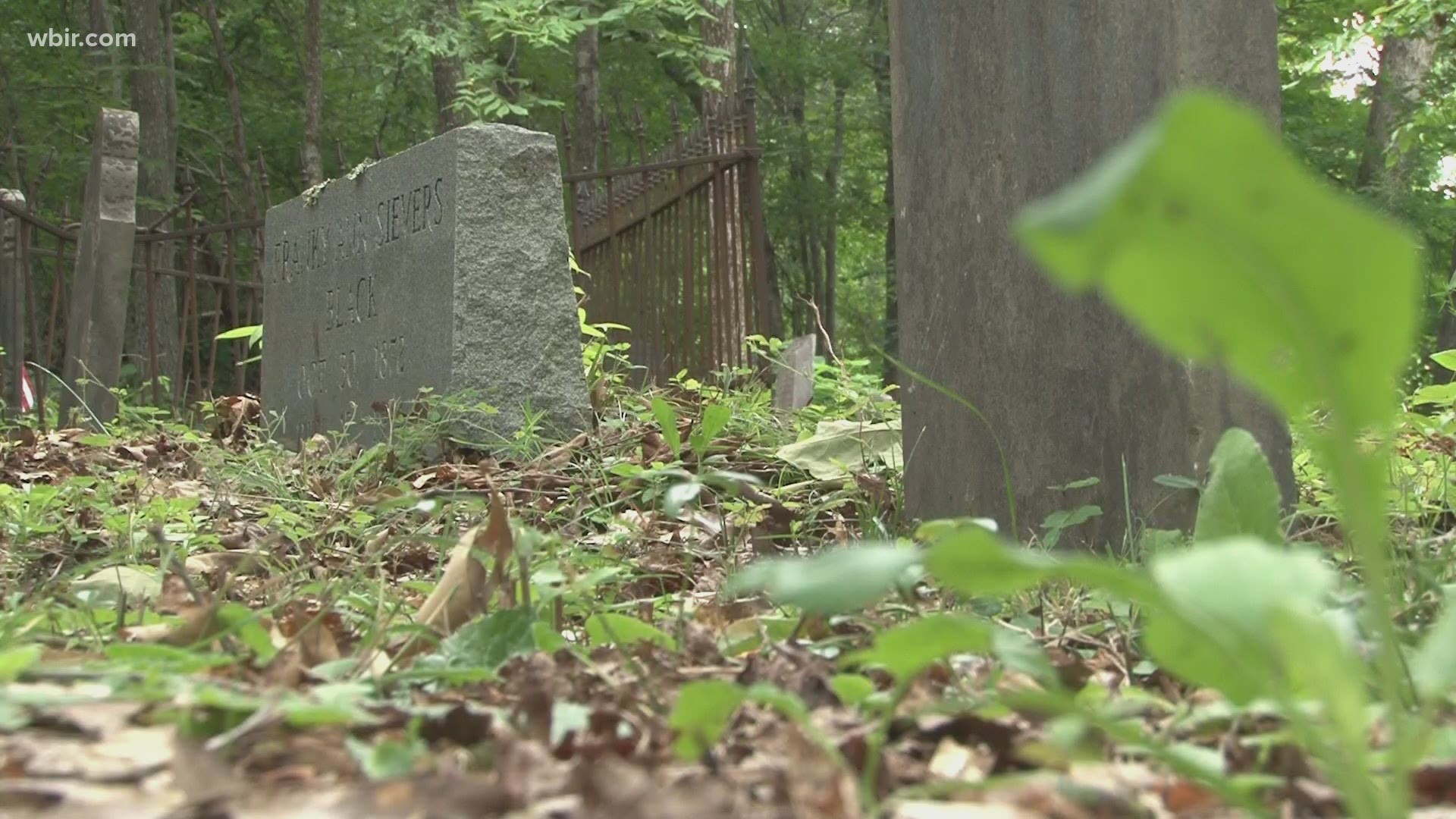ANDERSON COUNTY, Tenn. — In the woods near Blacks Ferry Road, there is a small cemetery with headstones poking out of the brush like small boulders. For years, it was neglected and overgrown. Then, a local historian went to work restoring it.
In the process, he also restored a family's connection with its history. A woman had the chance to visit some of her ancestors on Saturday after Leo York collected many Tennessee Valley Authority records and identified some of the people buried there.
"It means, oh gosh, it means so much," said Teresa Scott, who visited the grave. "Because there are a great many former slaves buried in this family cemetery."
It dates back to the Civil War and marks graves that more than a century old. York discovered that it was where members of the Black family were buried, including John Black. He was an enslaver and the spot marks where his descendants are buried.
"The cemetery itself was a family cemetery for Joseph Black and his wife, Katherine," said York. "They were both the first settlers to this piece of land."
There are more than 200 bodies in the cemetery York said. Some are veterans of The Civil War and around 75 are people who were enslaved.
One of them inherited land from his enslavers, according to records York found. Hade Black received land when he was included in the will of one of his enslavers.
Years later, an East Tennessee woman discovered how she was related to the Black family after the gravesite was restored. Scott said her maternal grandmother had been named after the Black family.
And when she visited the newly restored cemetery, she said she was drawn to the headstone of Hade Black, the former slave who inherited land from his enslavers.
"The first time I came here with my sister, I was drawn to the new headstone, the only new headstone and the inscription in that headstone," said Scott. "It said, 'born a slave, died free.' Chills just went off all over me."

